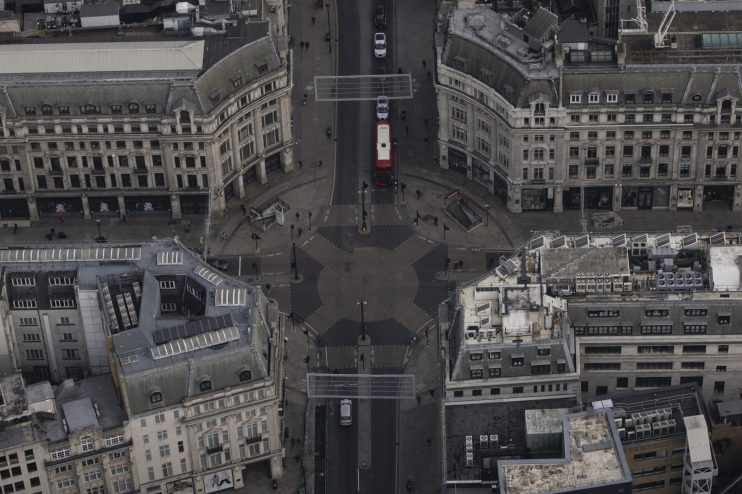We cannot stand by and let lockdown London become a ghost town

A second lockdown is upon us, and many in the business community are understably frustrated.
Some, in fact, have argued that we didn’t need to end up in this position at all.
I believe that it is important we do all we can to adapt to the new restrictions and support the government and NHS as it tries to limit the spread of the virus, while keeping essential, business-critical activity moving throughout the next month and beyond.
But it is also vital that the government works with the business community and uses this time wisely — to plan ahead to ensure we don’t end up in a third lockdown in the future.
Transport is a proxy for the wider economy. It tells us about the extent to which people are back to work and taking part in leisure activities. From looking at our passenger journey data, we have seen first-hand the struggle for survival the capital’s businesses have faced since the first lockdown in March.
London is of vital importance to the UK’s economic stability. It is not sustainable for it to remain a ghost town into 2021, if the country continues to lurch from lockdown to lockdown, and cities from tier to tier.
It is highly likely that Covid-19 will be with us for some time. So just as the NHS has learned to manage the impact of the virus to save more lives, it is time for the government to apply this thinking to the economy and the businesses operating within it.
We now need a sustainable long-term economic plan that looks further ahead than just one month at a time. For the sake of a functioning economy — and the livelihoods that depend on it — we need to maintain a minimum level of economic activity. This will ensure that the businesses, talent and innovation that we need to bounce back after Covid are not a casualty of the pandemic.
An important part of this should be rewarding businesses and industries that have invested to become Covid-secure. That is why we want to see the introduction of clearer guidance for businesses looking to mitigate risk and a “Covid-19 Safety Kitemark” for those that have made these extra investments. This guidance could include mandatory introduction of safety screens, regular rapid testing of staff and consumers, and ways to organise staffing hours to minimise risk.
In London, this would support businesses in our key sectors — recognising restaurants that have reduced their capacity in order to increase space for social distancing, or theatres that are temperature-checking patrons on arrival. In our case, we have invested heavily in ensuring we have safety screens across our entire multi-purpose vehicle fleet, while providing drivers with PPE and undertaking regular deep cleaning of vehicles.
These initiatives are often driven by businesses themselves and their desire to deliver the safest and cleanest service. We should reward this behaviour — and call for the same type of thinking from our decision-makers.
Alongside this, we also need an end to policies that inhibit growth. We have seen too often the impact of politicians’ lack of planning first-hand. For example, the increase in the congestion charge and extended charging hours, which came into force over the summer, are a tax on the entire London business community, disrupting connectivity and stopping economic activity — quite literally — in its tracks, at exactly the moment when this matters most.
People’s health is of course paramount, but we also need to make sure we have a plan in place to get the economy going again. Without it, we will see the demise of many of London’s landmark businesses and our capital left devoid of community and economic activity. We cannot stand by and let this happen.
Main image credit: Getty